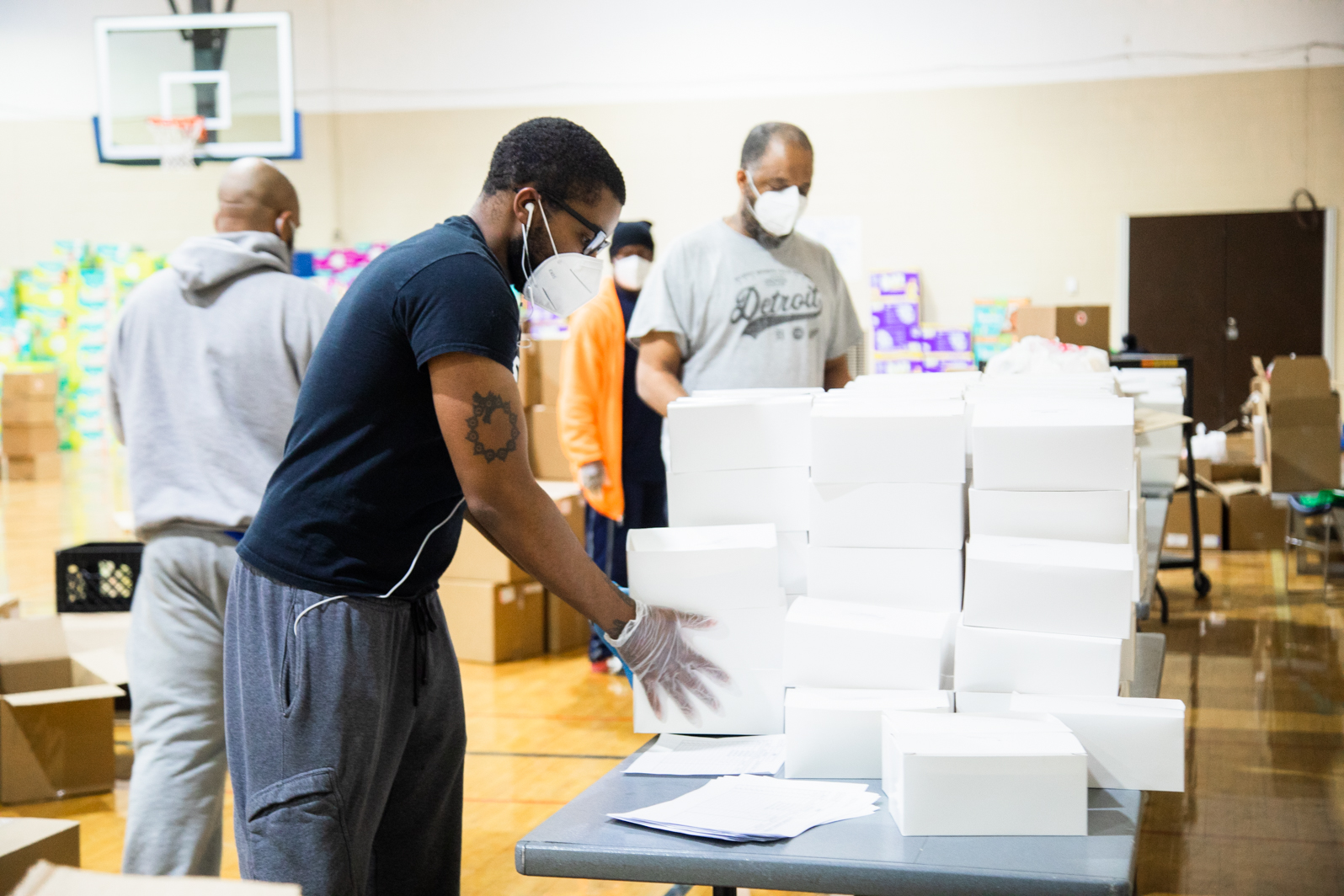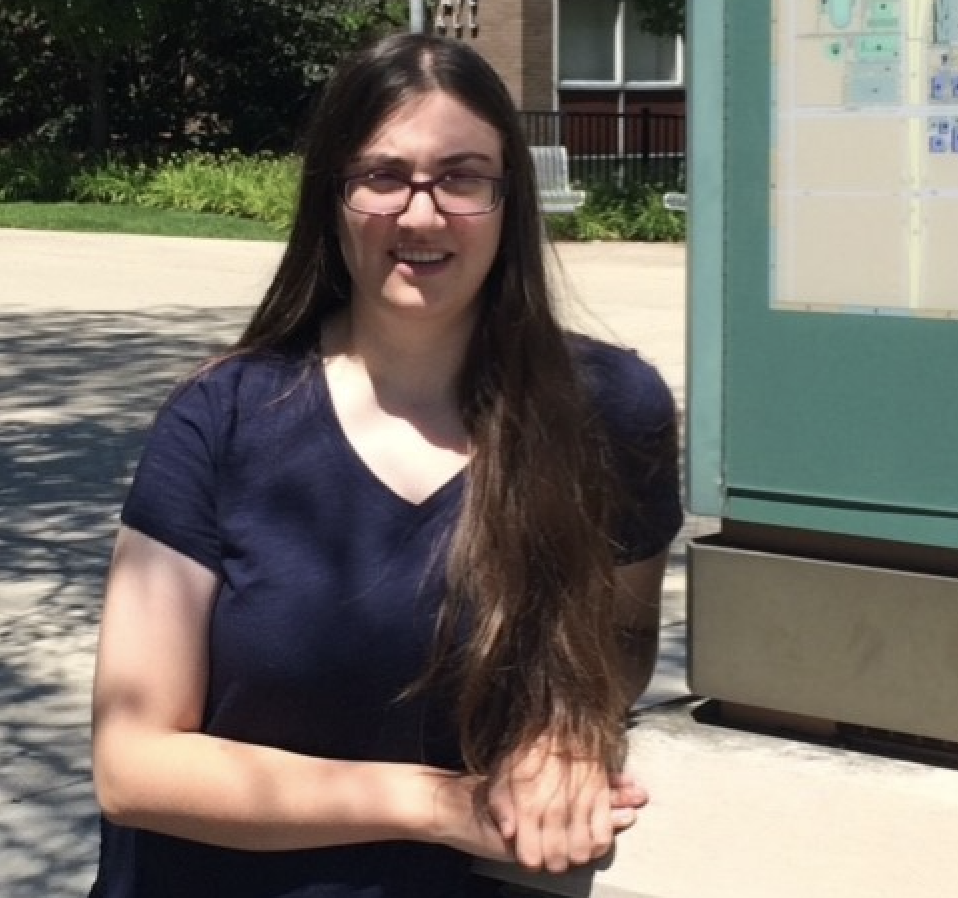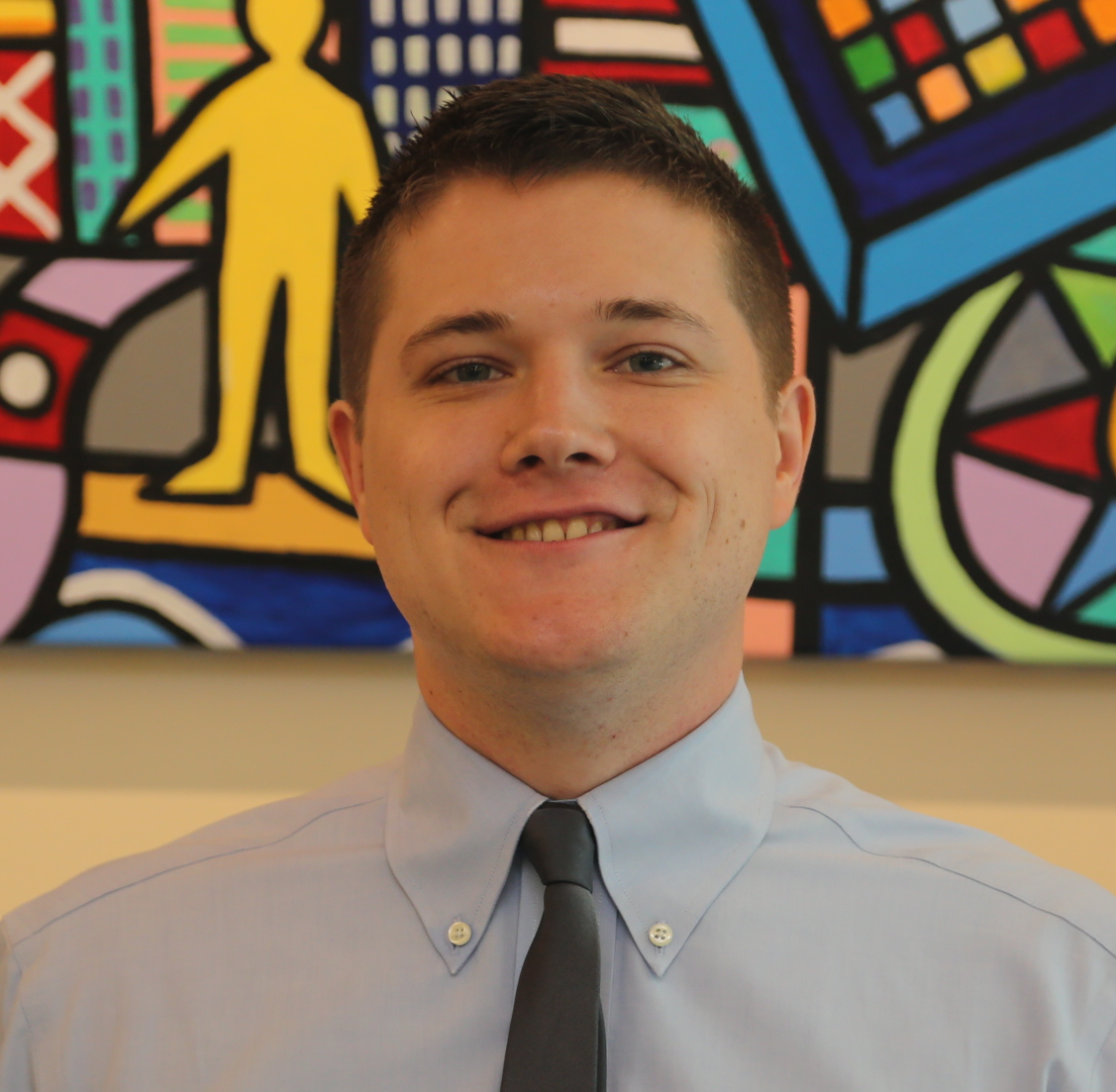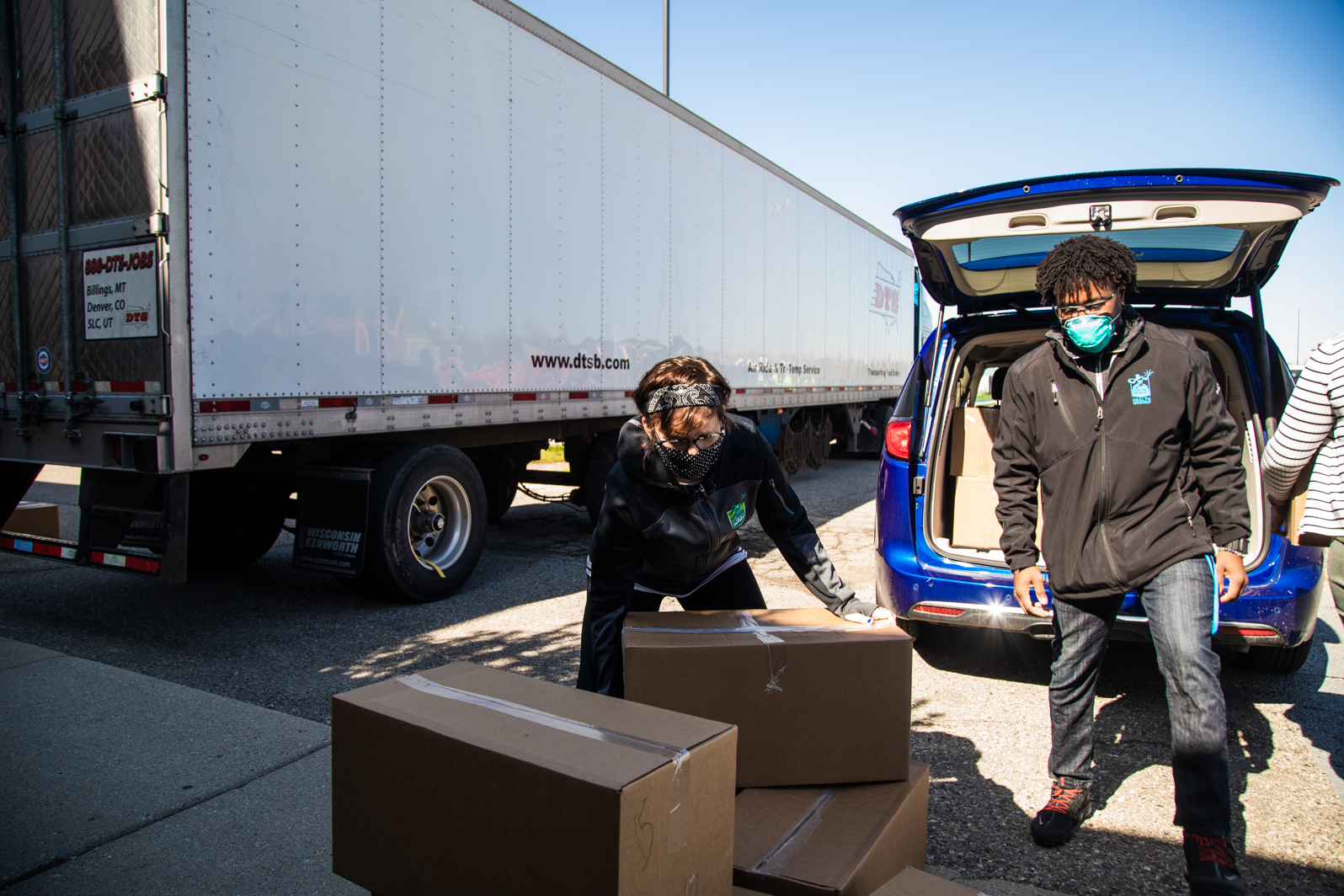Detroit COVID-19 Food Delivery program enlists Warriors
When the coronavirus arrived in Detroit in March, the city's Parks and Recreation Department set up emergency food distribution stations at recreation centers to serve families after school districts closed per Gov. Gretchen Whitmer’s state order. As cases ballooned around Southeast Michigan, the Parks and Recreation Department added a delivery element to their distribution efforts with support from the Mayor’s Office Innovation Team.

Six months later, the virus remains and the need for the delivery program persists. The Parks and Recreation Department will extend the COVID-19 Food Delivery program through the end of 2020 and as of Oct. 20, has served more than 160,000 meals to homebound residents.
In August, the program put out a call for interns and Iris Brauer and Thomas Shimmel, both master’s students in public administration at the College of Liberal Arts and Sciences, answered.
“I don’t think anyone thought the pandemic would go on as long as it has,” Brauer said. “Back in March, I didn’t think in October I would be doing grad school completely online while working on a COVID relief project.”
Yet every week, she spends 20 hours calling residents who are either homebound because they have tested positive for the virus and have been referred by the city’s health department, don’t have a vehicle and are not on a bus route, or are disabled and require a food delivery.

“I make sure residents are enrolled in the program in a timely manner, I verify their contact information and make sure everyone is scheduled for delivery each week,” Brauer said.
Shimmel works more the logistical side of things, mapping out the delivery routes at the start of each week.
Then, on Wednesdays—delivery day—volunteers are emailed the addresses on their routes. They drive to Detroit Rescue Mission Ministries, scribble their route number on a piece of paper and stick it to their dashboard. Their trunks are loaded with food boxes, then they drive to the resident’s home, call them en route to let them know they’re on their way and once they arrive, leave the food box on the stoop.
Shimmel works the phone lines on Wednesdays to ensure residents receive their deliveries in a timely manner.
The entire operation is contactless.
Finding a sustainable solution

Unfortunately, food insecurity is a problem many Detroiters knew intimately before COVID-19, and it’s one that will persist after the pandemic is over.
“Many Detroit residents can benefit immensely from this type of program, independent of the COVID Emergency,” Shimmel said, who, in addition to working on the logistics of the program, has been tasked with helping to find sustainable ways to keep the program going after the emergency response.
He is currently conducting a literature review, examining the intersection of food and transportation insecurity to research sustainable solutions that could help the program run even longer.
“If the goal is to provide Detroit residents and families in need with access to proper nutrition and meals, then this type of service will always continue to provide an important benefit to the community,” Shimmel said.

No matter what the future holds, Brauer and Shimmel agree that it’s been a rewarding experience being an intricate part of bringing aid to families in time of crisis.
“I remember panicking watching the news back in March and April and seeing how bad things seemed,” Brauer said. “Being able to help Detroit residents with COVID receive food and giving them one less thing to worry about has been a great feeling.”
Shimmel and Brauer aren’t the only Warriors with a hand in the delivery program. It’s run by Wayne State University alumna Erin Casey, B.P.A. ’11, M.P.A. ’16, the parks and rection office’s assistant director, and two volunteer delivery drivers are alumni: Amanda Eisbrenner, M.P.A. ’18, and Abby Laframboise, M.P.A. ’18.
Interested in signing up to be a volunteer delivery driver? Sign up here. You can participate for as many or as few weeks as you’d like. Total commitment is about an hour and a half per week you sign up.